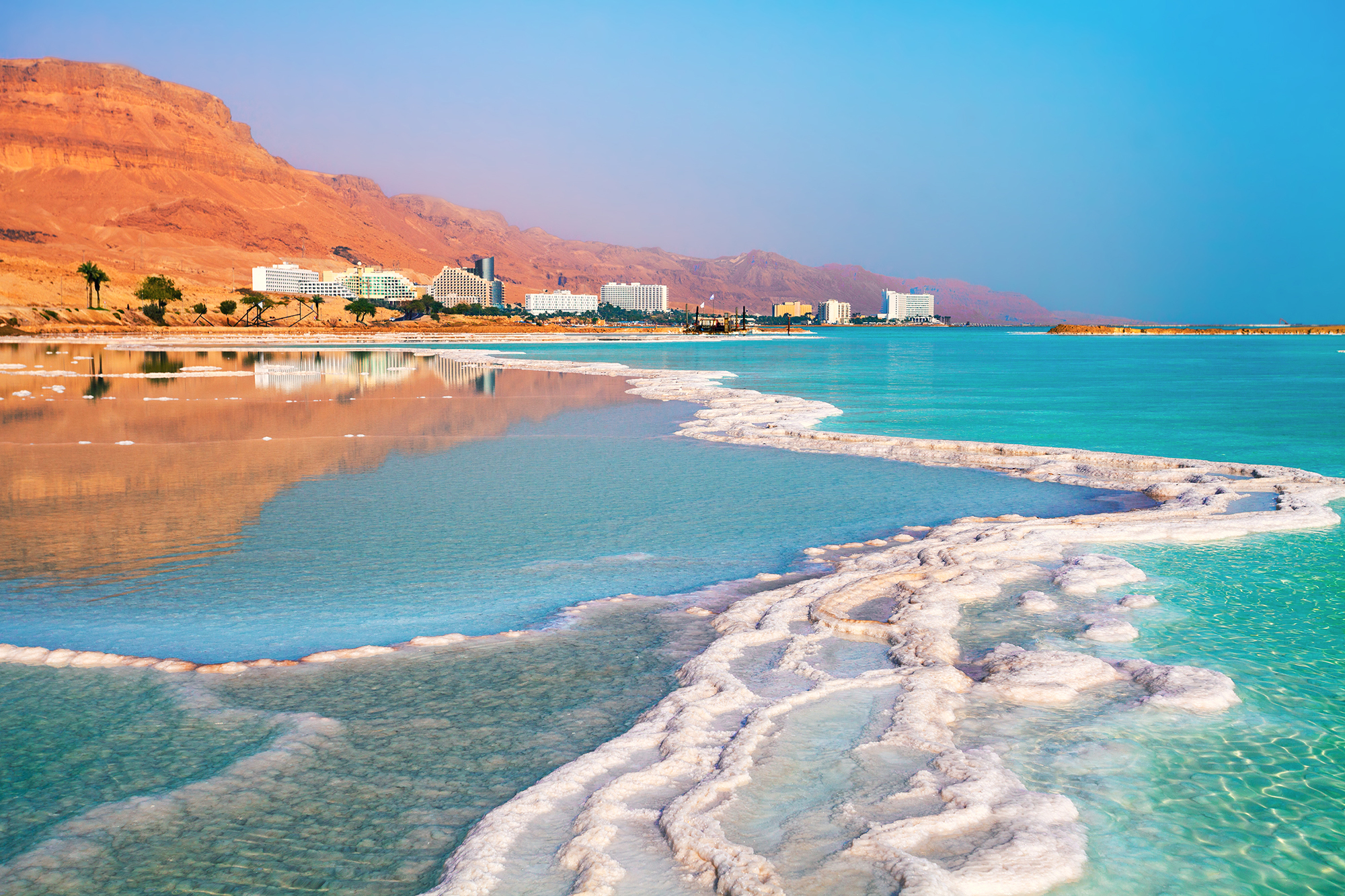
DEAD SEA, Israel (BP) — The Dead Sea has been receding for decades, with some experts predicting its total demise by 2050. But a $1.5 billion plan to resurrect the biblically prominent sea is nearing fruition, NBC News reported Nov. 29.
 Meetings are expected within weeks to finalize the plan considered for two decades, NBC reported, to build a desalination facility in Jordan to essentially remove salty brine from the Red Sea and pump it into the Dead Sea. The desalinated water remaining from the Red Sea would be suitable for drinking, meeting water demands amid rainfall that continues to decrease.
Meetings are expected within weeks to finalize the plan considered for two decades, NBC reported, to build a desalination facility in Jordan to essentially remove salty brine from the Red Sea and pump it into the Dead Sea. The desalinated water remaining from the Red Sea would be suitable for drinking, meeting water demands amid rainfall that continues to decrease.
Jim Sibley, a Baptist who teaches at the Israel College of the Bible, told Baptist Press today (Nov. 30) the conditions causing the Dead Sea to recede an estimated three-to-five feet a year are more complex than widely reported.
Fed by fresh water from rivers and streams flowing from surrounding mountains, the Dead Sea held steady through the 1950s, Smithsonian Magazine reported in 2005. The water becomes salty through evaporation.
The sea began to recede in the 1960s, Smithsonian said, when Israel built a pumping station on the banks of the Sea of Galilee to divert water from the Jordan River, the Dead Sea’s main lifeline. The condition worsened in the 1970s, Smithsonian reported, when Jordan and Syria began diverting the Yarmouk River, the lower Jordan’s main tributary. By 2005 the sea had shrunk to 30 miles long from a length of 50 miles in the 1950s, the Smithsonian reported.
But Israel didn’t build the 1960s pumping station, Sibley said.
“A topic to fact-check is the claim that Israel diverted the flow of the Jordan River,” Sibley said. “The Jordan Diversion Plan was a plan by the Arab League to deprive Israel of the water of the Jordan. Israel has never diverted the Jordan, although, of course, it used water from the Jordan and the Sea of Galilee.
“Israel has also built a number of huge desalinization plants to ease the demands on the waters of the Jordan River,” Sibley said. “Israel has not been indifferent to the crisis at the Dead Sea.”
The Dead Sea region is a major tourist attraction for Christians and others. It holds such riches as the site of Jesus’ baptism, the location of the discovery of the Dead Sea scrolls, the purported remains of the biblical city of Sodom, and the mineral rich waters of the Dead Sea that many credit with healing properties.
Israel’s tourism market reportedly reached $6.59 billion in 2017, according to industry insiders. But the Dead Sea’s receding waters and shoreline create sinkholes that swallow buildings and roads, NBC said. At least two seaside tourist attractions have been forced to close, and parts of an adjacent highway have vanished.
Despite the Dead Sea’s significance, Sibley said saving souls far outweighs saving the body of water.
“It has occurred to me,” Sibley told BP, “that the lower levels of the sea and the extensive mining efforts which are removing minerals and salts may play into God’s plans for the future. Ezekiel 47 speaks of a river that begins at the Temple in Jerusalem and a portion of it flows to the Dead Sea so that ‘the waters of the sea become fresh’ (v. 8).
“I have wondered if God is not using the current conditions to prepare for this future river,” Sibley told BP. “In any case, our [Israel College of the Bible] focus has been to bring life to the peoples of this land who need the Lord more than the Dead Sea needs water.”
The cost of the $1.5 billion plan to regenerate the Dead Sea would be shared by Israel and Jordan, who would together pick up a third of the bill in cooperation across political divides, NBC reported. A grant from the U.S. government and loans from the French development fund, the European Commission, and the governments of Italy and Spain would help the two nations meet their obligations, NBC said. The remaining funds would come from the private sector.











